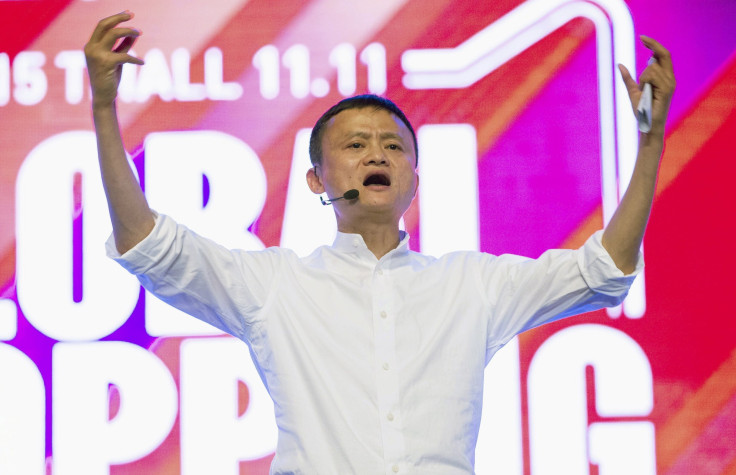Alibaba Group Holding Ltd (BABA) Revenue Beats Wall Street Expectations Amid Concerns Over Chinese Economy

LONDON -- With the Chinese economy set to experience it slowest growth in 25 years, and Alibaba's share price losing 50 percent of its value since the world's biggest IPO last year, there was a lot of pressure on China's e-commerce giant before its latest set of results; while there are still some causes for concern, results were better than expected, leading to its share price rising over 8 percent in early trading Tuesday.
Alibaba's results for the September quarter showed revenue was 22.1 billion yuan ($3.48 billion), an increase of 32 percent year-over-year and better than Wall Street expectations of 21.3 billion yuan ($3.35 billion) according to a Thompson Reuters poll.
Having peaked at almost $120 last November following its record-breaking IPO, shares in Alibaba plummeted to below $60 in September before recovering somewhat in the last month. In the wake of the latest results, the company's shares were up almost 6 percent on the New York Stock Exchange.
While revenue may have risen -- mainly due to core Chinese e-commerce business -- one of the key indicators of the company's success, general merchandise volume (GMV), has slowed significantly compared to this time last year. GMV is a measure of the total value of goods traded through Alibaba's online stores and rose 28 percent in the latest quarter, down from growth of 49 percent in the same period last year. However, the company remains bullish on this figure: “We had very strong results this quarter. GMV grew to $112 billion, a year-on-year increase of $25 billion in this quarter,” Maggie Wu, chief financial officer of Alibaba Group, said.
China's economy is slowing down with growth in the third quarter reportedly 6.9 percent, which represents the slowest rate since the global financial crisis, and the country is expected to experience its slowest full-year growth in a quarter of a century.
Joe Tsai, the company's executive vice chairman, dismissed any concerns over the state of the Chinese economy saying the "temporary setback" of slowing growth won't significantly affect the way consumers spend their money. "The way we look at it is, the Chinese economy is growing gangbusters. Are we going to benefit from this? Absolutely we will," Tsai told analysts on a call after the results were published.
Tsia said individual Chinese consumers are "very liquid" and over the last several years wage growth has been increasing at over 10 percent year-on-year and there is a high savings rate. "People have lots of savings, lots of liquidity, and we suspect that a temporary setback in the macro economy is not going to affect their consumption pattern in a fundamental way."
Mobile Success
Just like Google last week, Alibaba has shown that its dominance in mobile is a key factor in its continued success. The company saw mobile GMV account for 62 percent of the total figure with mobile revenue at 10.5 billion yuan ($1.65 billion), representing a year-on-year increase of 183 percent. According to eMarketer, Alibaba has over 85 percent market share in mobile e-commerce in China, which is seen as a result of the successful "optimization of its search and advertising for mobile, as well as the ease with which it is possible for consumers to use mobile payments." In the last two years, Alibaba has sought to augment its mobile offering through acquisitions, including the purchase of Umeng, a leading mobile analytics firm in 2013, and map app AutoNavi in 2014.
On an earnings call with analysts, Alibaba CEO Daniel Zhang highlighted the revenue growth from cloud computing and Internet services, which is up 128 percent compared to this time last year; according to Wu, this growth was primarily due to an increase in the number of paying customers and more complex offerings, including content delivery networks (CDN) and database services.
Acquisitions
Alibaba has sought to move away from its reliance on e-commerce in recent months with a number of high profile investments and acquisitions. Earlier this month the company announced that it would acquire the remaining part of Chinese video website Youku Todou it doesn't own for $3.6 billion. Alibaba said "the proposed transaction would expand our existing partnership, and would combine Alibaba’s unrivaled data-driven platforms in e-commerce, media and advertising with Youku’s market-leading digital video franchise."
When asked about potential future acquisitions, Tsai said the main deciding factor for Alibaba was whether or not companies they are looking at would fit its business model of consumption: "We have seen that consumption growth is something that we want to leverage our business to, and consumption is not just about online shopping, but also consumption of digital goods, it is about consumption of services, so we are looking at things that will enhance our position in the consumption economy."
The company has also been linked to a $200 million investment in massively hyped augmented reality startup Magic Leap, and it has also recently taken a stake in Indian mobile wallet startup Paytm, consolidating its foothold in the fastest-growing online market in the world. The company is also an investor in China's biggest ride-sharing app Didi Kuaidi, whose 85 percent market share dominates new entrant Uber.
Alibaba doesn't provide revenue guidance for coming quarters, but according to eMarketer, the company is expected to capture 4.3 percent of the $170.17 billion global digital ad market in 2015, a small increase from 4.2 percent in 2014. Its Chinese rival Baidu, by comparison -- will capture 5.4 percent in 2015, up from 4.8 percent in 2014.
Alibaba’s core business is e-commerce, with its websites like Taobao, 1688, Alitrip , Tmall and AliExpress best described as a mixture of Amazon, eBay and PayPal with $4 out of every $5 spent online in China done through one of Alibaba's myriad online properties.
© Copyright IBTimes 2025. All rights reserved.






















